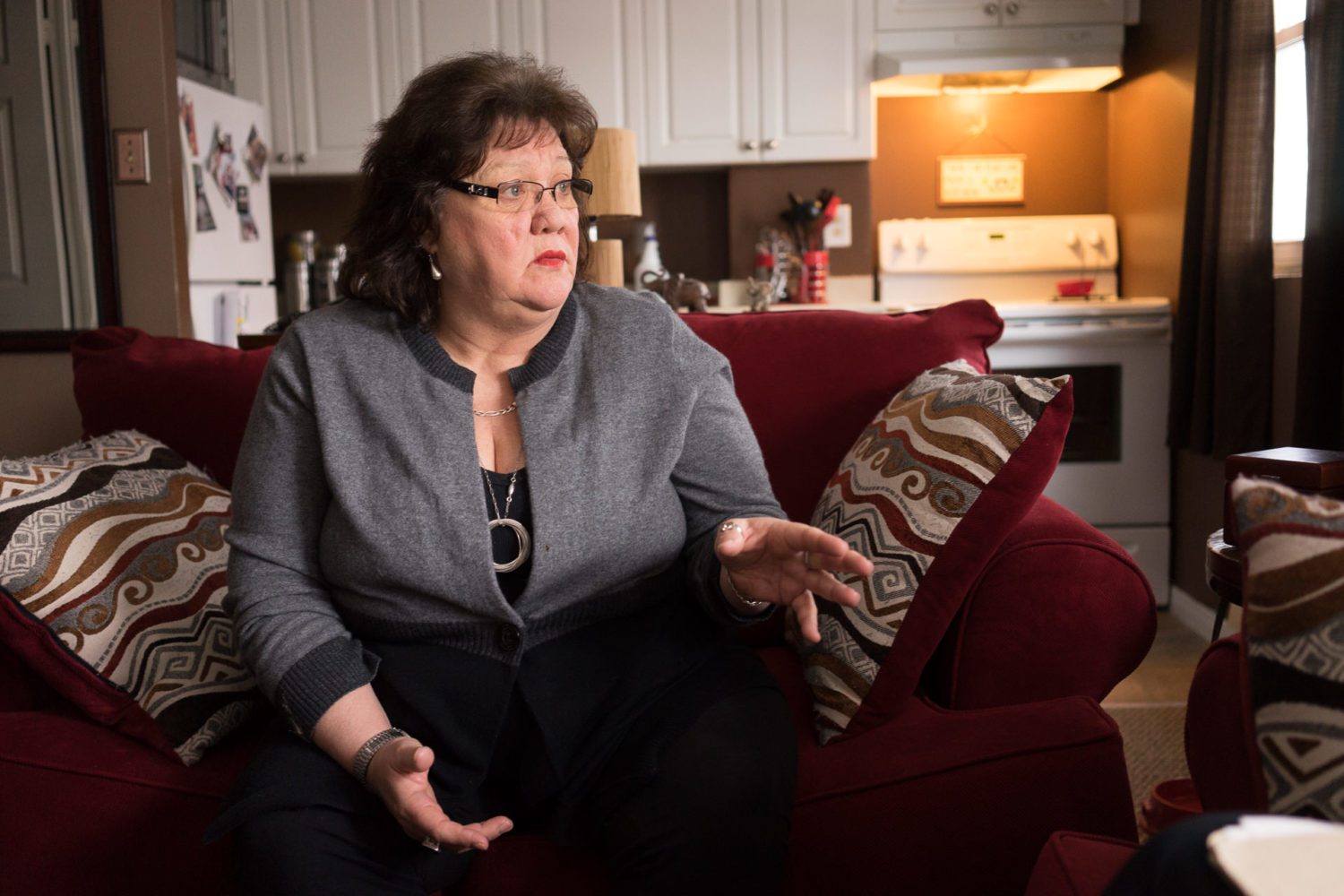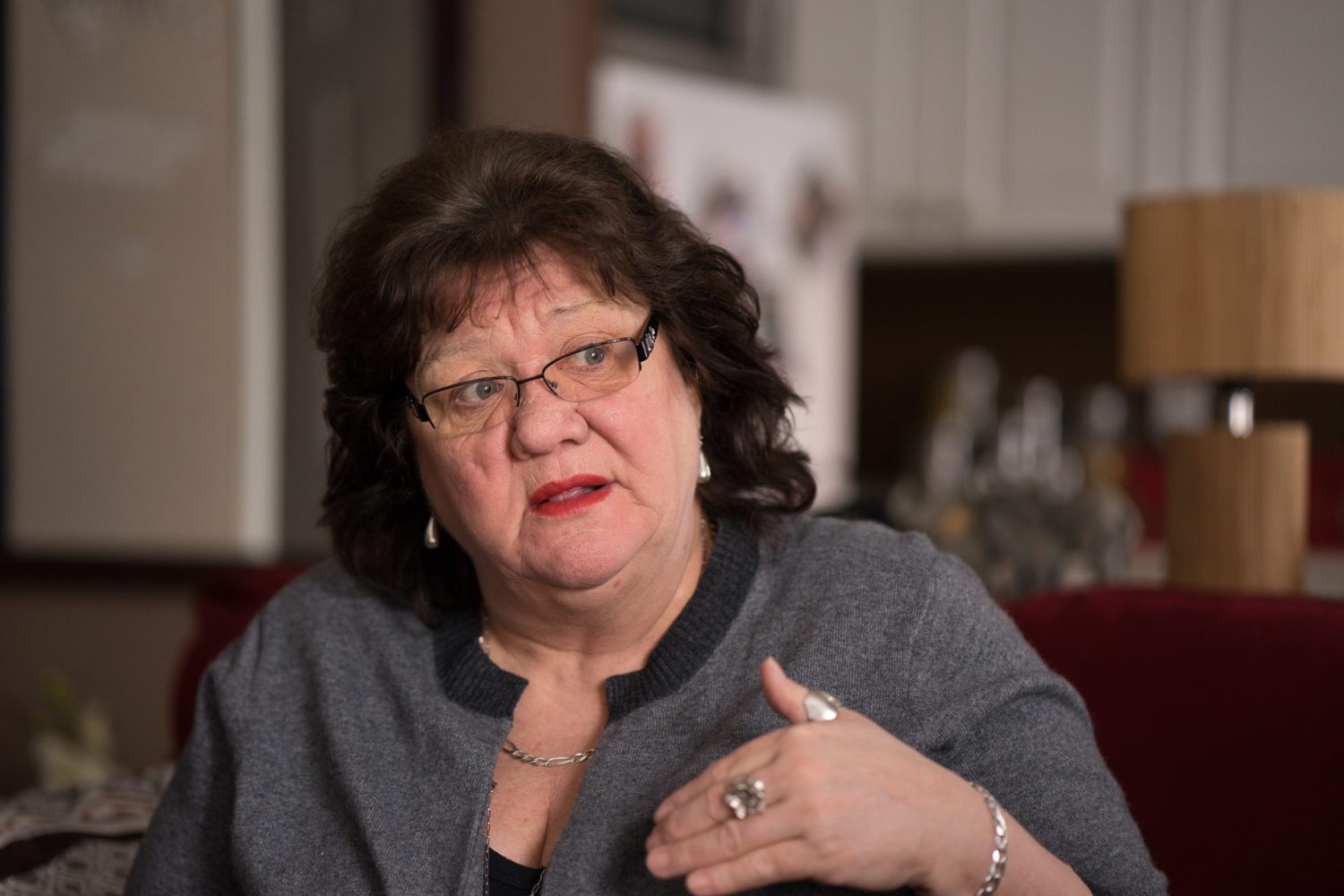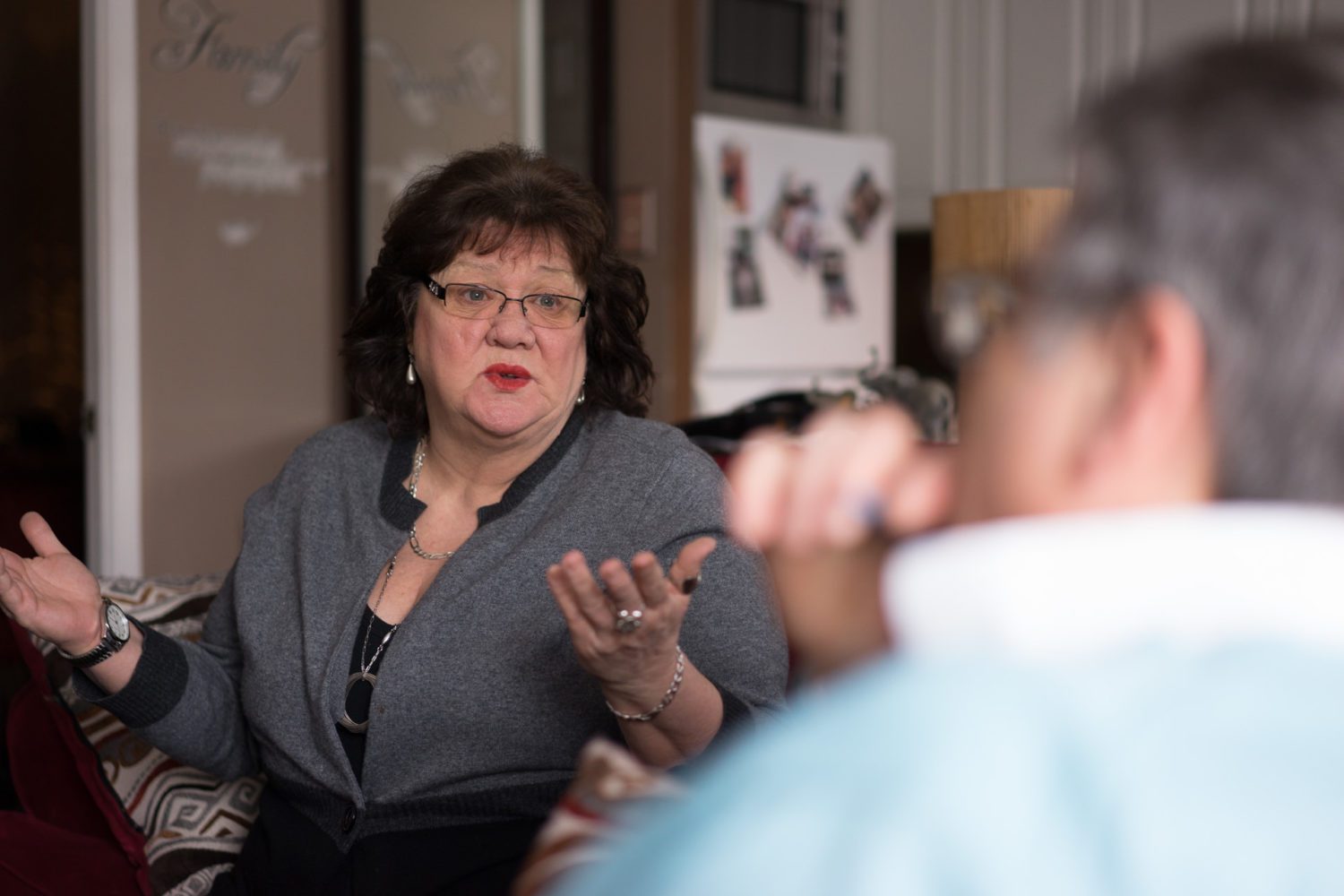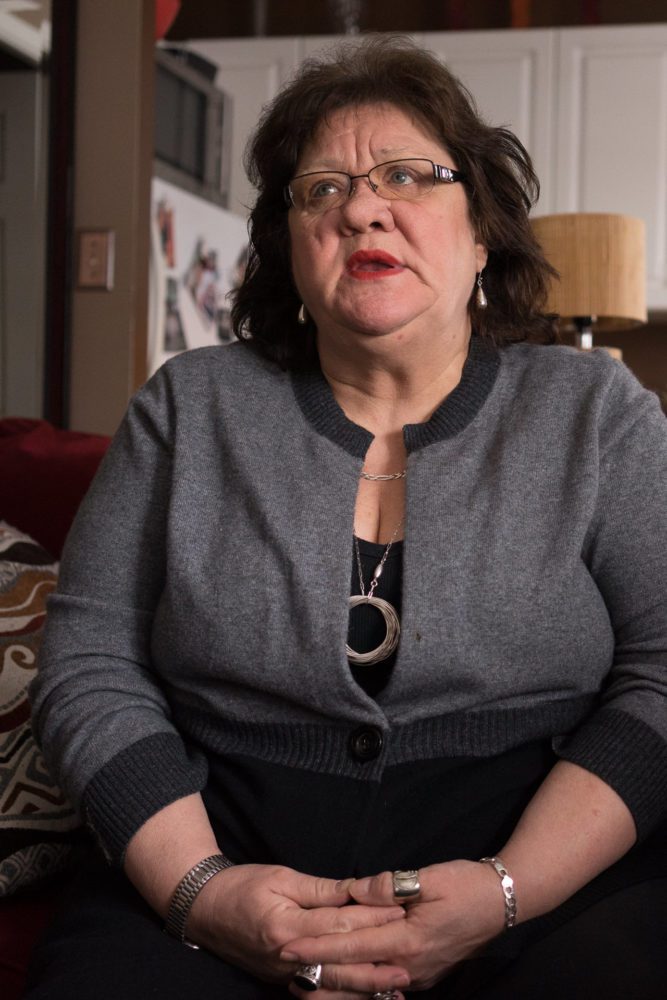After living on the streets for two decades, Madonna now volunteers as a patient advisor, hoping she can help health workers see the daily struggles people dealing with poverty and addiction face.
“When I came in from the streets I was 117 pounds and I was filthy dirty. I had lived on the street for a long time, and I’d go days without eating.”
I went into detox and I remember the woman said to me, ‘You know what Madonna, all you need to do here is sleep and eat.’
“They had a fridge that was constantly stocked. So, I really ate. Sweets. You crave sweets when you are detoxing. So I ate sweets like crazy, and when I went from detox to a treatment centre for women, the food there was unbelievable. They gave me as much as I wanted. They really shouldn’t, because I came out at 180 after just 12 weeks. I am diabetic so I’m trying to lose weight. I’ve lost 60 pounds from last year.”

“There are a lot of organizations in the city helping people come in off the streets. There was Narcotics Anonymous, a women’s shelter, the organization that owns this building, a home for women at risk. There’s way too many to mention. There was my doctor who helped me in the first few years. One organization got me my ID and set me up with a bank account. When I got my first debit card I was like, ‘Oh my God!’ I was so excited about that debit card!”
“I think there is more help for women than men. Separating men from women is pretty important. There are different issues for men on the streets than there are for women. I believe it’s harder for women on the streets. Rape. All kinds of stuff like that.”

“As a patient advisor, I speak to the upcoming doctors at the university, to nurses and to social workers. I had a problem with social workers because of my addictions. I speak to them and let them know what it feels like on the other end.”
“I get satisfaction out of it, but it’s mostly about hopefully eliminating some of the problems that I’ve had dealing with the medical system, being a recovering addict. There were times when I was turned away. One time I had sepsis and they didn’t admit me to the hospital because they thought I was there for drugs! But it’s also about giving back. When I came in off the streets there were people that were there for me, and that made a big difference. At the detox centre and the treatment center, the people were non-judgemental and they cared about things like whether I had a comfortable pillow – simple things that made me feel like I had worth again. When I was recovering, it was very scary. When you live on the streets for 23 years, your world becomes very small. The only thing I really knew were the people that were on the block with me, the four blocks that I was on right?”
Even grocery shopping was absolutely foreign to me. I felt really out of my element. I felt like everybody was staring at me, like everybody knew.
“Recently, when I was speaking to the doctors about addictions, there were maybe 10 to 12 fourth-year medical students. I can almost tell which ones are in it because they want to make a difference, and which ones are in it because they want to buy a new house. There was one out of the 12 that just turned her nose up at everything I said. Just turned her nose up at everything! I just wanted to….oh, I was upset! But that’s part of it. You know, not everybody is going to listen. But I find that on the whole, people do listen.”

“I am on the Ontario Disability Support Program. I am grateful for what I get but it is still not a whole whack of money, right?”
I’m on insulin, and the insulin pen is covered, but the needles aren’t covered, and they are 60 bucks for a box.
“You are supposed to change the needle every time you do a shot. But I don’t change the needle every time. I just can’t afford to. I change the needle every time I change the insulin pen, so I use the same needle for what about 10 shots. ODSP recently started giving me $20.00 towards the needles, but that still leaves $40.00.”
“I needed a medication for something else; I prefer not to say what. It was $80.00 a month, and it was the difference between me being comfortable and uncomfortable. But I couldn’t get it. That’s grocery money. Anything extra like that is grocery money.”

I think there is prejudice against people who are overweight.
“I’ve had many surgeries. The last knee replacement was really bad. When they did the nerve block they had to lift up my weight, and they were so ignorant about it. One nurse said to me ‘You’re no slim Jim and you’re breaking my back.’”
“I have been in this apartment for 15 years, but they have been trying to get me to a seniors’ place for a year because of the stairs. Because I had a stroke a few years ago my peripheral vision is off, and I am scared with the stairs. I am scared I am going to fall and go through the window. Also, there is only one washer and one dryer and I have to go down two flights with every load. So they have been trying to get me out of this place, but I have been waiting since 2008.”
There is no such thing as subsidized housing.
“When I had the stroke, they said you have to have a life expectancy of two years to get into subsidized housing.”
“I have always been proud of Canada because we help refugees who are coming in. But I think that we need to do much better to help people who are already here.”


The comments section is closed.